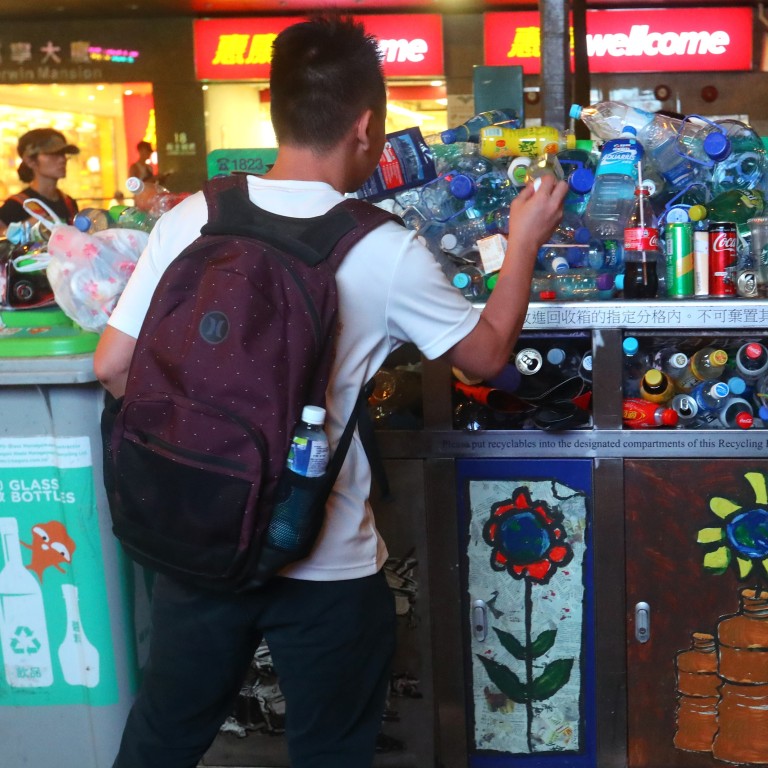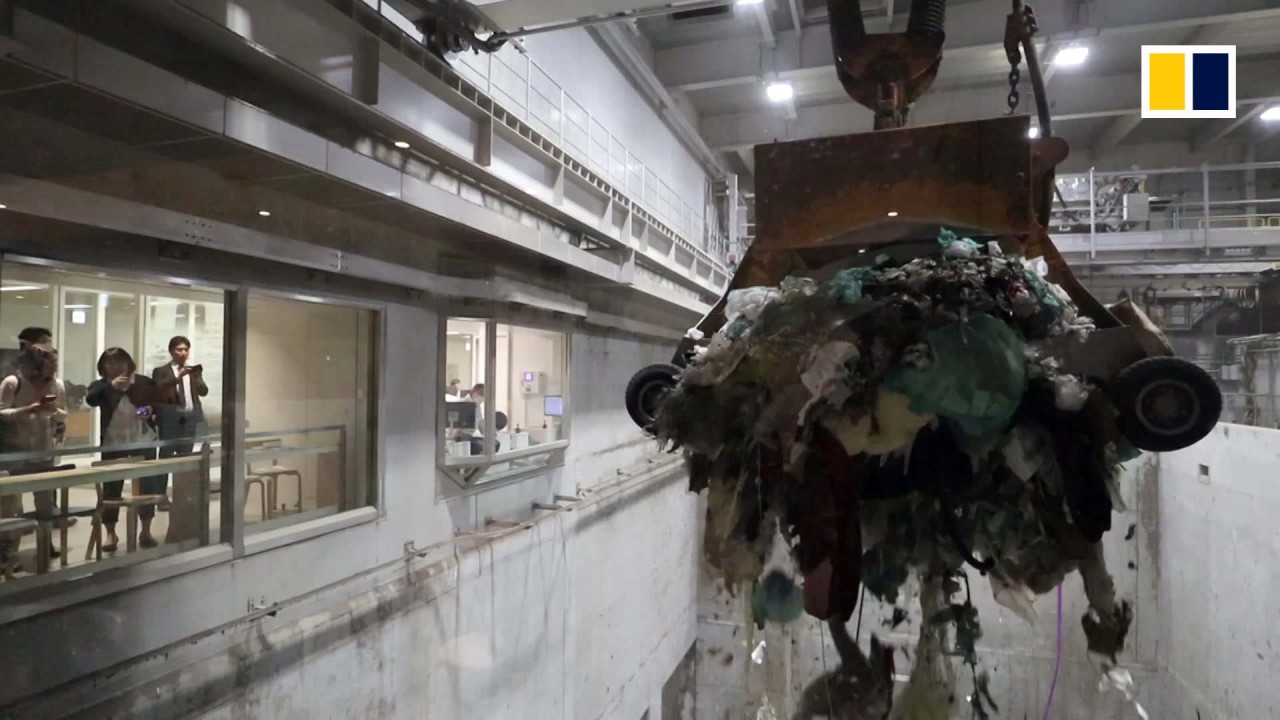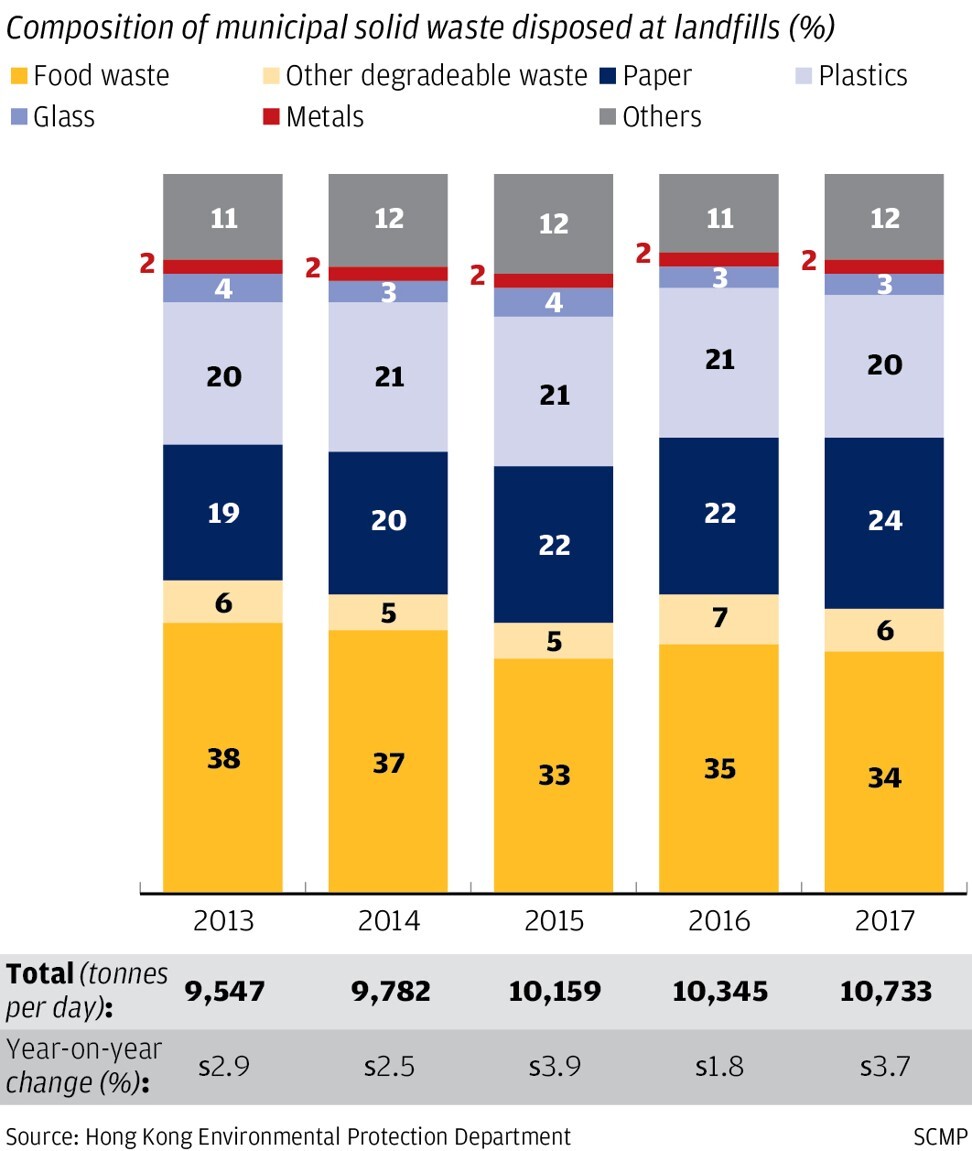
Hong Kong can’t wait any longer for a waste charging scheme
- Hong Kong is more than a decade late in confronting the problems of its municipal waste, whose growth has far outstripped the city’s population
- We simply don’t have any wiggle room now; for the future sustainability of Hong Kong, lawmakers must agree and vote for the scheme
“Do you know where your trash goes?” This is a question I enjoyed asking friends and colleagues while I was chairman of the Sustainable Development Council and working on the issue of municipal solid waste in Hong Kong. Unsurprisingly, most people had no idea.
It’s all too easy to stick our heads in the sand when it comes to the waste we produce. However, we are more than a decade late in confronting this critical issue in Hong Kong. The amount of municipal solid waste our city produces has increased 80 per cent in the past 30 years, outstripping its population growth of 36 per cent. In 2018, the average Hongkonger generated 1.53kg of waste daily. That’s more than a half tonne of waste per person per year.
I worry that politics and economic considerations will keep it from passing during this session. We don’t have any wiggle room here; for the future sustainability of Hong Kong, it absolutely must pass.
What is the municipal solid waste charging scheme? It’s a version of the “pay as you throw” concept that has successfully reduced such waste in cities around the world.
In Hong Kong, there would be a levy of around 11 cents per litre for household trash and a per-pound levy for larger items. Designated garbage disposal bags would be sold in places such as grocery and convenience stores. There would be various incentives offered to offset these fees through recycling and fines in place to discourage non-compliance.
In most cities where it has been rolled out, the cost levied on rubbish is far higher than anything currently proposed for Hong Kong. San Francisco residents, for example, end up paying around US$40 per month on average.
The point of having a trash fee in Hong Kong isn’t to make money. Rather, it is a mechanism, similar to the 50-cent plastic bag levy, to make people more mindful of how and what they throw away. Sadly, even in this moment of growing awareness of pollution and global warming, many people simply do not look seriously at the connection between their everyday consumption and environmental issues.

00:56
‘Wasted’ in Tokyo: Garbage-plant bar offers rubbish view
Right now, Hong Kong’s percentage of recycled household waste is around 30 per cent – better than New York’s but far below where we need to be. Even by stepping up recycling and lowering our household waste, we are still going to need to find more landfill space and build more incinerators.
The unfortunate and discouraging reality is that changing our behaviour and producing less waste won’t completely solve Hong Kong’s municipal waste problem. However, implementing the pay as you throw scheme is an urgent and long overdue first step forwards.
Bernard Chan is convenor of Hong Kong’s Executive Council


